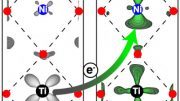
The research discovered that drugs do not need to penetrate the microvessel blood-brain barrier to impact brain insulin resistance.
Cerebrovascular insulin receptors are defective in Alzheimer’s disease.
A recent study published in the journal Brain conducted by Laval University and Rush University Medical Center has revealed new information about Alzheimer’s disease. The study found that the formation of amyloid plaques, one of the hallmarks of Alzheimer’s disease, is linked to a decrease in insulin receptors in brain microvessels, which may also cause brain insulin resistance.
Frédéric Calon, a professor at the Faculty of Pharmacy and a researcher at the CHU de Québec-Laval University Research Center, headed the research that led to the finding.
The findings might have an impact on the hunt for new Alzheimer’s drugs. “Several clinical trials are underway to assess the efficacy of diabetes drugs for Alzheimer’s disease,” said Professor Calon. “Our study shows that drugs do not need to cross the blood-brain barrier of microvessels to affect brain insulin resistance. Instead, they can target insulin receptors located in cerebral microvessels. That expands the range of drugs that could be tested for Alzheimer’s.”
The research was made possible through a long-term study that started in 1993 and included roughly 1,100 participants from about 30 different American religious congregations. The individuals have agreed to yearly physical and psychological examinations as well as donating their brains after death. The Brain article is based on information from 60 deceased individuals who took part in this extensive study.
Examination of their brains revealed that:
- Insulin receptors are found primarily in blood microvessels, not neurons, as previously thought.
- Alpha-B insulin receptor subunits were less prevalent in the microvessels of people diagnosed with Alzheimer’s.
- Cognitive test scores were lower in subjects with fewer alpha-B insulin receptors in their microvessels.
- Subjects with fewer alpha-B insulin receptors in their microvessels had more beta-amyloid plaques in their brains.
Experiments carried out by the researchers on transgenic mice used to study Alzheimer’s disease showed that the quantity of alpha-B receptors in microvessels decreased with age and disease progression.
“Our findings suggest that the loss of alpha-B insulin receptors in brain microvessels contributes to insulin resistance in the brain and cognitive decline in people with Alzheimer’s disease,” Professor Calon said.
These findings support the idea that Alzheimer’s is a neurodegenerative disease with a strong metabolic component. “Metabolic dysfunction exacerbates Alzheimer’s, and Alzheimer’s amplifies the metabolic problem. It’s a vicious circle,” said Professor Calon.
Reference: “Cerebrovascular insulin receptors are defective in Alzheimer’s disease” by Manon Leclerc, Philippe Bourassa, Cyntia Tremblay, Vicky Caron, Camille Sugère, Vincent Emond, David A Bennett and Frédéric Calon, 25 October 2022, Brain.
DOI: 10.1093/brain/awac309
The study was funded by the Canadian Institutes of Health Research (CIHR).









Be the first to comment on "New Alzheimer’s Breakthrough Expands Range of Potential Drugs"